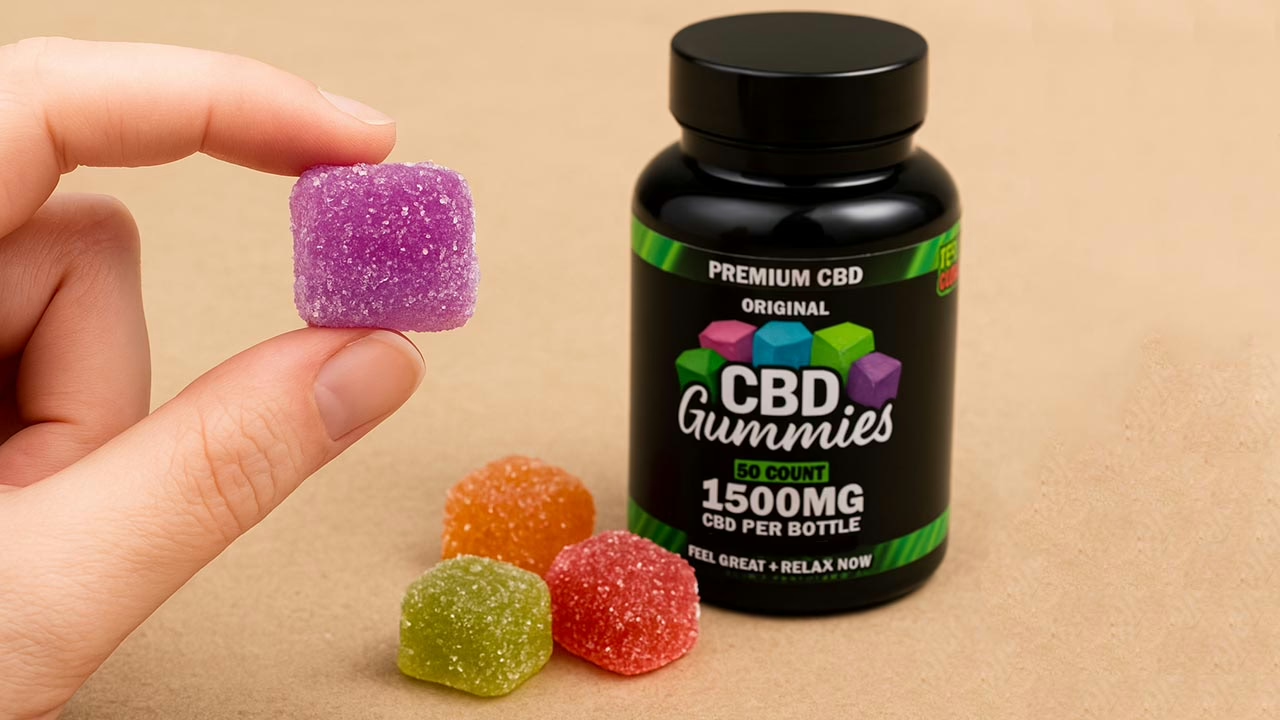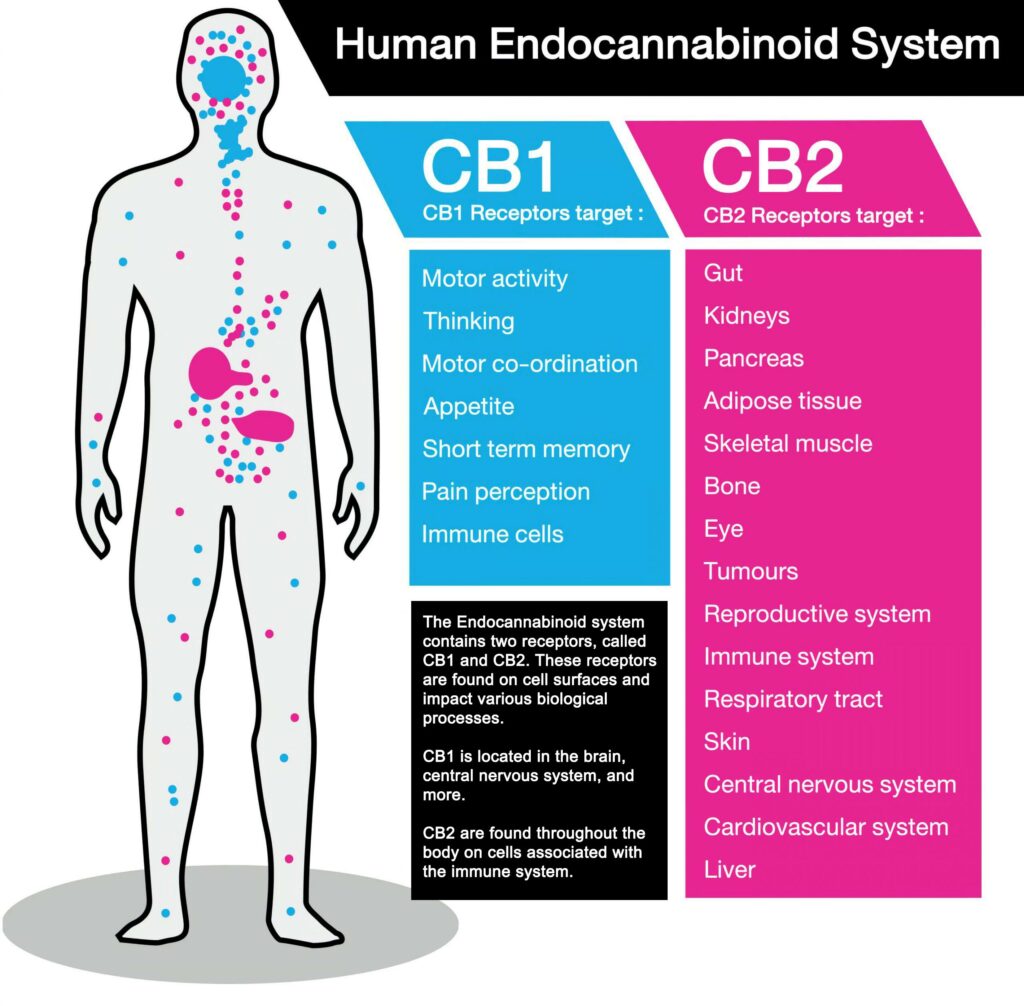Side Effects of CBD Gummies
Summarize

CBD gummies are generally considered safe, but some people have experienced side effects in clinical studies. These side effects are usually mild, such as drowsiness or a change in mood. Some potential side effects can be more serious, especially when due to interactions with medications processed in the liver.
Overview of Potential Common Side Effects
CBD gummies are the first choice for many people because they are available in different flavors and potencies and are easy to consume. Like any natural or synthetic compound consumed, there are risks of experiencing side effects. The common CBD gummy risks include the following.
- Drowsiness or sedation
- Dry mouth
- Mood changes, including irritability or agitation
- Decreased appetite
- Gastrointestinal symptoms like diarrhea or upset stomach
- Changes in appetite
- Liver injury
- Interactions with medications
CBD is non-psychoactive, so it does not cause a high. However, full spectrum CBD gummies do contain a small amount of THC. Some people are sensitive to THC and may experience a low intoxication level, especially if consuming high potency CBD gummies and taking several doses daily. Anyone with a low THC tolerance should buy broad spectrum or isolate CBD gummies.
Not all side effects are adverse. Some people may experience positive side effects when taking CBD. In a study on the brain function of people with a high psychosis risk and taking 600 mg of CBD, the participants experienced reduced psychosis symptoms and improved cognitive performance. Some of the other potential positive side effects include reduced discomfort feelings, relaxation, and improved sleep. Each of these side effects is also being clinically studied, and the body of scientific evidence is growing.
Why Do Side Effects Occur?
The adverse effects of CBD gummies are due to one of several reasons. A significant reason is that CBD interacts with the endocannabinoid system (ECS), which regulates many of the body’s systems. The ECS is still being studied, but it is known that it regulates sleep, mood, appetite, memory, the immune and inflammatory response, the respiratory function, the cardiovascular system, and the reproductive system. The wide-ranging impact of the ECS system stems from the fact that the precursors of the endocannabinoids are arachidonic acids, which are present in every cell membrane. Electrical activity, calcium shift,s and the action of lipids and peptides regulate the synthesis process. So CBD is interacting with a major biological system that is still being studied.

Another reason for potentially experiencing side effects is that CBD, THC, and other cannabinoids in edibles may interact in a way that leads to unpredictable impacts. Many studies have investigated CBD or THC consumption by intravenous or inhalation consumption and not by edibles like brownies, candies, and gummies. A research project focused on THC and CBD orally administered at the same time and found that stronger effects occurred when the same THC dose was given with a high CBD extract dose. Participants experienced more cognitive and psychomotor impairment and a greater heart rate increase.
Though this study had participants consume edibles with 20 mg of THC and 640 mg of CBD in the brownies, the findings demonstrated that a high dose of oral CBD can lead to stronger and longer-lasting THC effects.
Full spectrum CBD gummies side effects might be stronger for some people because of the interaction of THC and CBD.
There is documented evidence of potential side effects because of the relationship between CBD and liver function. CBD is metabolized in the liver through enzymatic action, and the liver is where some drugs are also metabolized. CBD may inhibit some enzyme action (especially the CYP3A4), which can interrupt drug interactions and cause liver injury.
In general, CBD interactions with medications may cause side effects because of how the substances are processed. Mixing CBD and the medicines that are processed by the cytochrome P450 system, called the hepatic metabolic system, creates the highest risk of side effects. The P450 system is a group of enzymes that carry out the metabolic processing of compounds, breaking them down for absorption. CBD may alter or inhibit enzymatic actions, leading to changes in the levels of CBD and medications. The potential drug-drug interactions (DDI) are still being researched.
CBD may also interact with some herbs. St. John’s wort and ginkgo biloba are two herbs that may alter how CBD is metabolized.
Who is Most at Risk of Experiencing Side Effects?
1. Taking Certain Medications
As discussed, certain medications should not be mixed with CBD. One study identified 139 medications that cannabinoids may affect, and 57 of them may be dangerous if their concentration is altered due to CBD affecting the medication’s metabolism. The following is a brief description of the medicines involved.
- Medications that cause sleepiness, including benzodiazepines, opioids, antihistamines (including over-the-counter), antipsychotics, and antidepressants, should be avoided because of over-sedation.
- Medications that are stimulants may cause a decreased appetite.
- Diabetes drugs and CBD may increase the risk of diarrhea.
- Heartburn drugs may increase the risk of diarrhea.
- Antinausea medications.
- Some muscle spasm medications.
- Antiseizure medications, including lamotrigine, clobazam, valproate, and Epidiolex (made from synthetic CBD).
- Heart medications and blood thinners.
- Thyroid medications
2. Taking a Poor Quality CBD Product
Not all CBD products are correctly labeled. The FDA has found there are unscrupulous product producers who mislabel their CBD products, so there may be more or less CBD or THC in a dose. If the potency of CBD or THC is higher than the label states, it may be possible to experience a CBD gummy overdose. There may also be other unsafe ingredients, like heavy metals and pesticides.
3. Regularly Consuming THC
If you are already smoking marijuana or consuming THC in other ways, there is an increased likelihood of experiencing side effects from CBD. Cannabinoids are believed to accumulate in the body’s tissues, so adding another cannabinoid increases the risk of side effects developing.
4. Having a Medical Condition
If you have a medical condition involving the liver or kidneys, there is a greater risk of experiencing a high level of drugs or CBD. This may lead to undesirable side effects.
5. Older People
As people age, their metabolisms slow down, among other biological changes. The likelihood of experiencing side effects varies depending on age.

Tips to Reduce Side Effects
➥ If you are a beginner, start with a low-potency CBD gummy and allow 1-2 weeks to assess the effects before increasing the potency or dosage frequency. Each person has a unique metabolism. Other factors influencing how CBD is processed include age, weight, and health conditions.
➥ Buy CBD gummies from reputable brands that are transparent about product ingredients, correctly label their products, and provide access to the Certificate of Analysis (COA).
➥ Review the Certificate of Analysis for each CBD product before buying gummies, oils, or other CBD products.
➥ Check with your physician before consuming CBD gummies.
➥ Avoid mixing alcohol and CBD.
➥You should never buy CBD products that make therapeutic claims about CBD. They are not government-regulated, so the FDA does not allow health claims.
Sources
- https://library.samhsa.gov/sites/default/files/pep22-06-04-003.pdf
- https://www.frontiersin.org/journals/pharmacology/articles/10.3389/fphar.2023.1328885/full
- https://pmc.ncbi.nlm.nih.gov/articles/PMC8581450/
- https://www.hopkinsmedicine.org/news/newsroom/news-releases/2023/02/cbd-may-increase-the-adverse-effects-of-thc-in-edible-cannabis-products-study-shows
- https://pmc.ncbi.nlm.nih.gov/articles/PMC8298645/#Sec16
- https://pmc.ncbi.nlm.nih.gov/articles/PMC9871609/
- https://www.health.harvard.edu/blog/cbd-and-other-medications-proceed-with-caution-2021011121743 and https://karger.com/mca/article/3/1/61/188911/Delta-9-Tetrahydrocannabinol-and-Cannabidiol-Drug
- https://pmc.ncbi.nlm.nih.gov/articles/PMC2782342/
Share this post



0